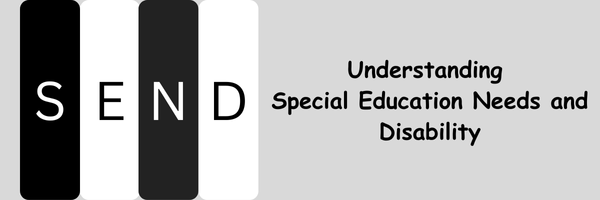2.1: Significance of Early Childhood Education and School Readiness
What is early childhood Education?
Early childhood education is a branch of education theory that relates to the teaching of children from birth up to the age of eight. Traditionally, this is up to the equivalent of third grade.
ECE emerged as a field of Special Education, which is termed as ECSE(Early Childhood Special Education) across the India were literacy in only 74.04%. Which is increased compare to previous years.
History of Early Childhood Education in India:
- Early childhood education in India is a relatively recent development. Throughout the history of India, formal education was limited to only male members of the high caste groups.
- The conscious and systematic attempt to educate children from all sections of the society began in 1937 with the educational philosophy of Gandhi.
- Gandhi’s basic education scheme was designed to set up free and compulsory education at the national level.
- Maria Montessori’s 1939 visit to India implanted the foundations of preschool education in India and teachers were trained in Montessori’s method of education.
- Early childhood education has been a constant focus of all major committees and commissions established by the government of post-Independent India.
Trends and Issues Affecting Early Childhood Education in India:
- The Enrollment of Women professional in the Workforce Growing in India.
- The Extended Family System is Gradually Disintegrating.
- Early Childhood Education Enables the Caregiver, Usually an Older Girl Sibling, to Attend School.
- Both Basic and Educational Needs of Young Children with ID can be addressed through early childhood education.
Governmental Agencies Support Preschool Education in India:

Objectives of Preschool Education- ECE

Early Childhood Education in India: Recent Achievements
- Providing developmentally appropriate education in early years.
- Integrating Children with Special Needs in the Regular Classrooms.
- Combining Western Models of Early Childhood Education with Indigenous Practices.
- Encouraging Community Participation.
- Conducting Program Evaluation through various Methods.
- Implementing Innovative / new Projects.
Significance of Early Childhood Education:
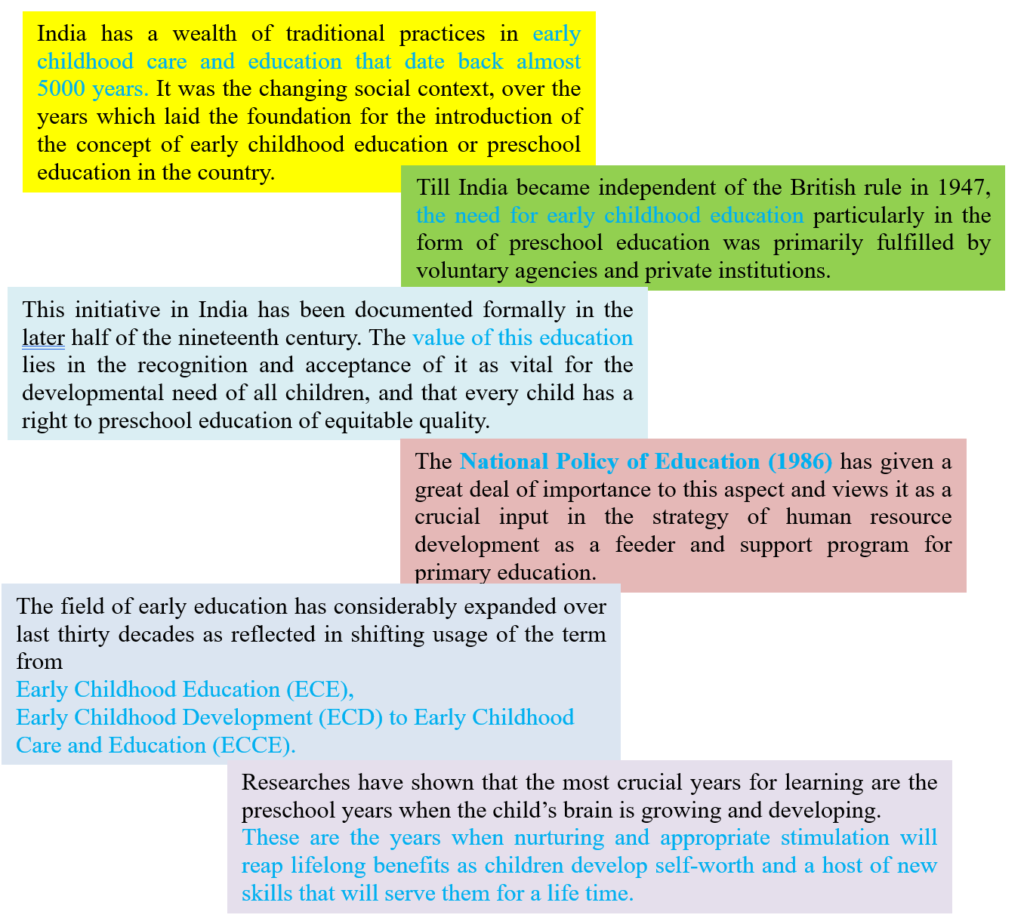
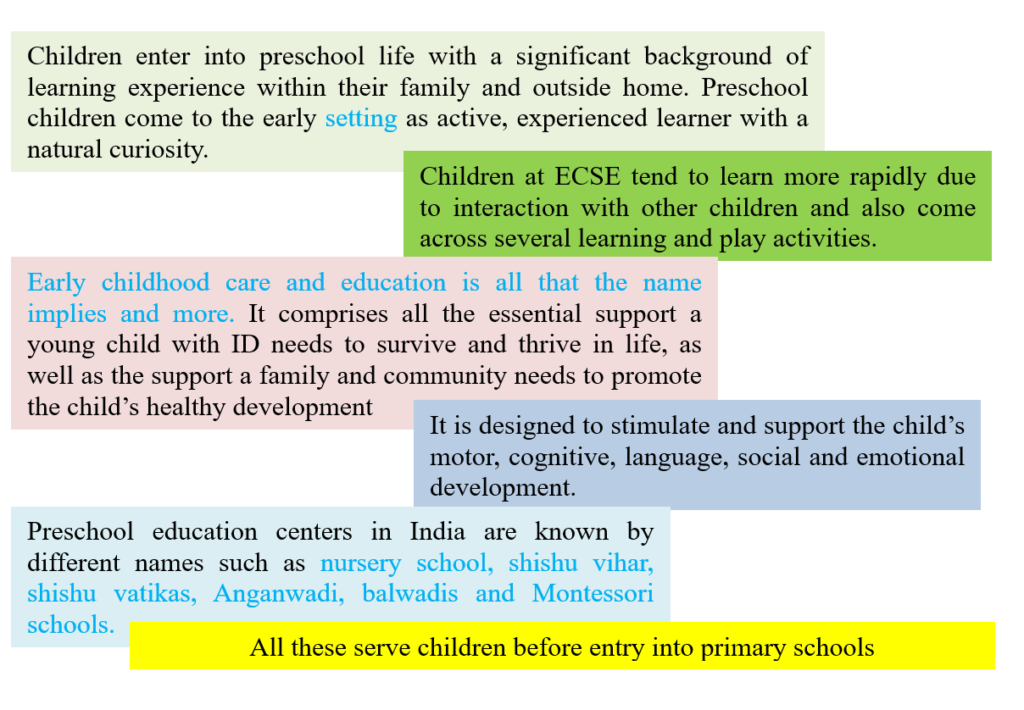
School Readiness for children with Intellectual Disabilities:
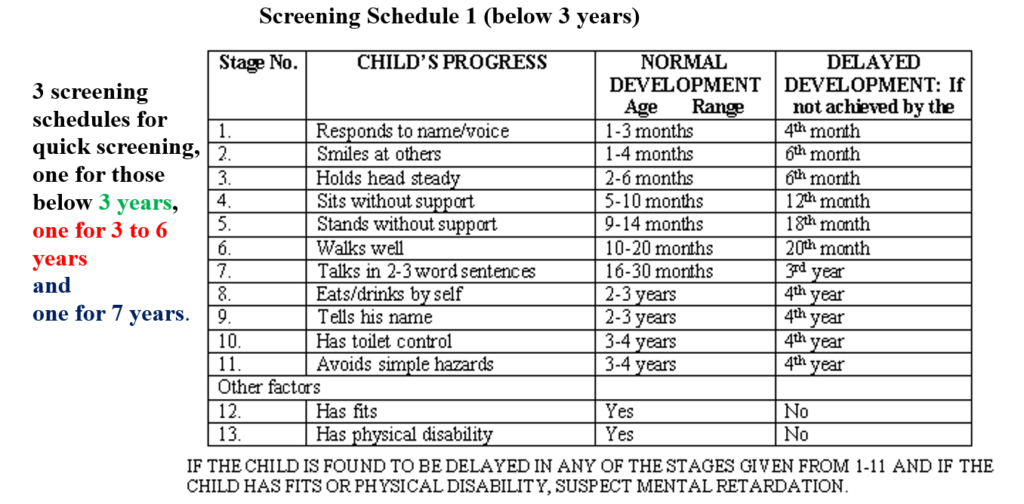
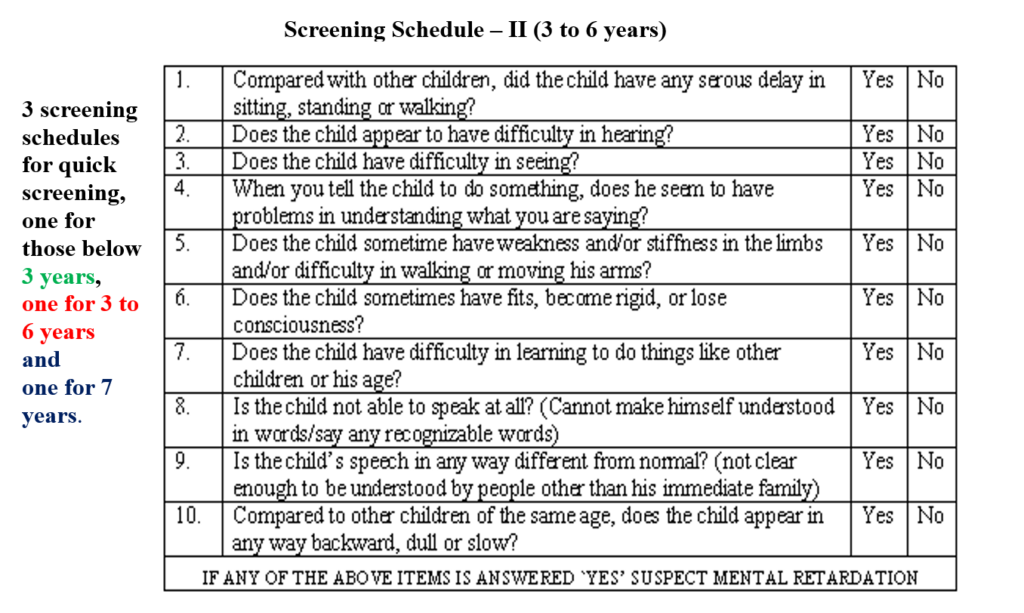
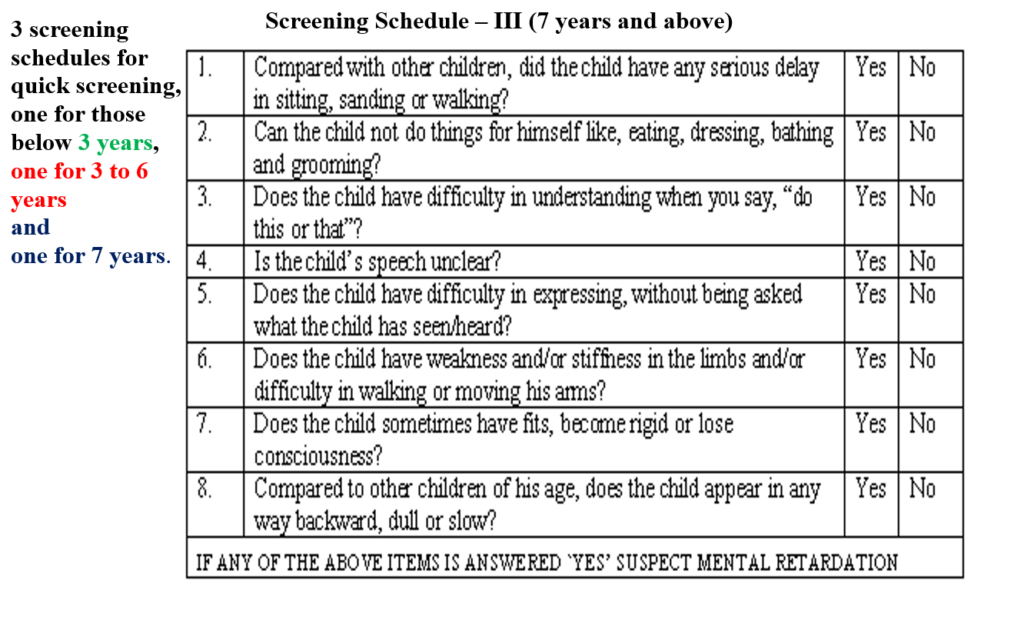
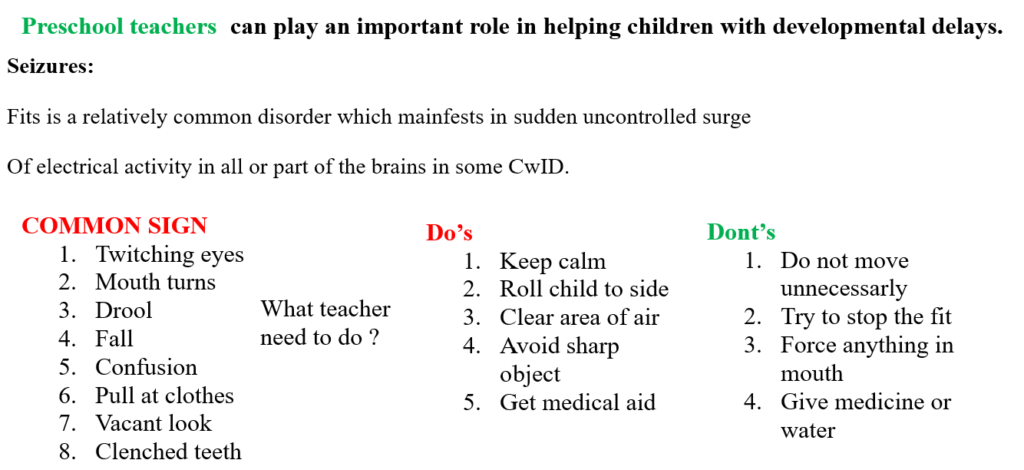
Educational classification of CwID:
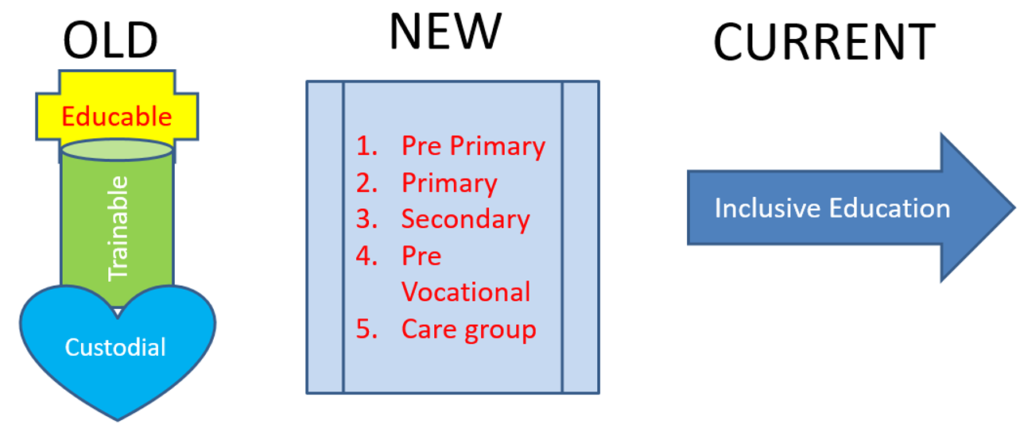
Characteristic of CwID at School Levels:
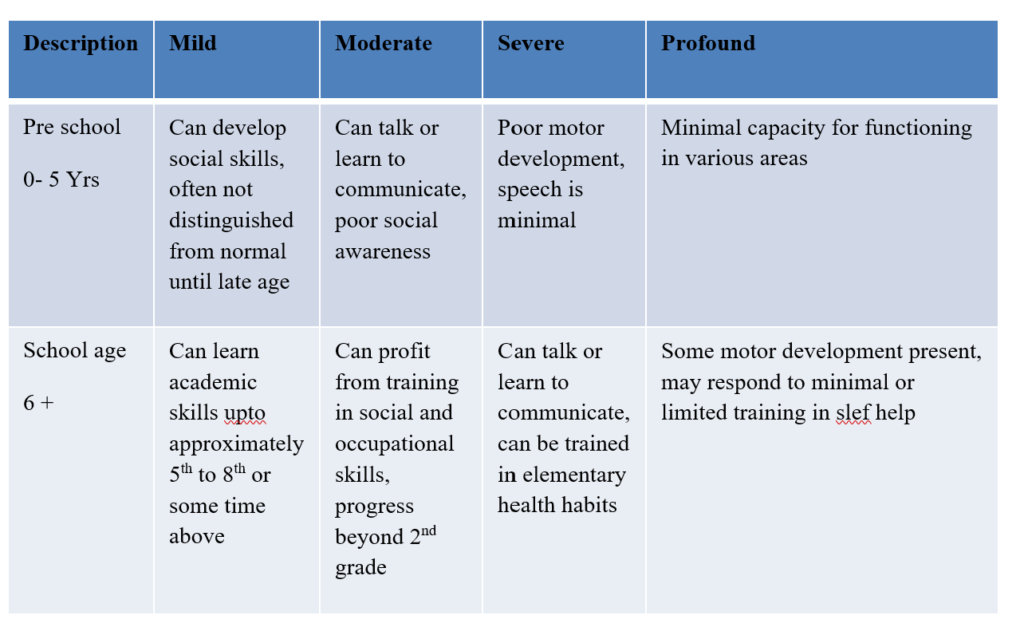
Educational Facilities for CwID:
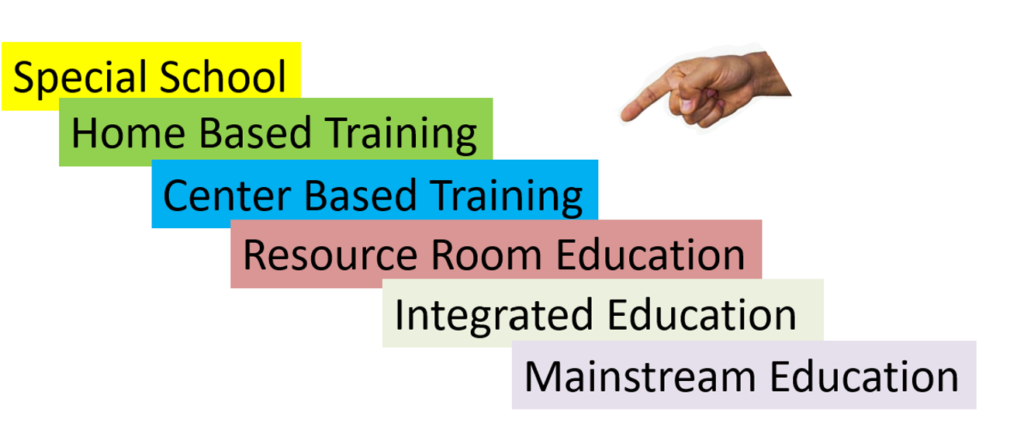
Activities for School Readiness:

- Developing activities for school readiness amongst children with intellectual disability must be categoriesed across level 1 to 3.
- The division do not restrict the teacher with time limits within which targets have to be met.
- Identify child’s ability to perform tasks selecting and master them for school readiness.
- One major characteristic among CwID is their slowness in learning, demanding longer time and Repetition to practice.
- Ability to generalize.
